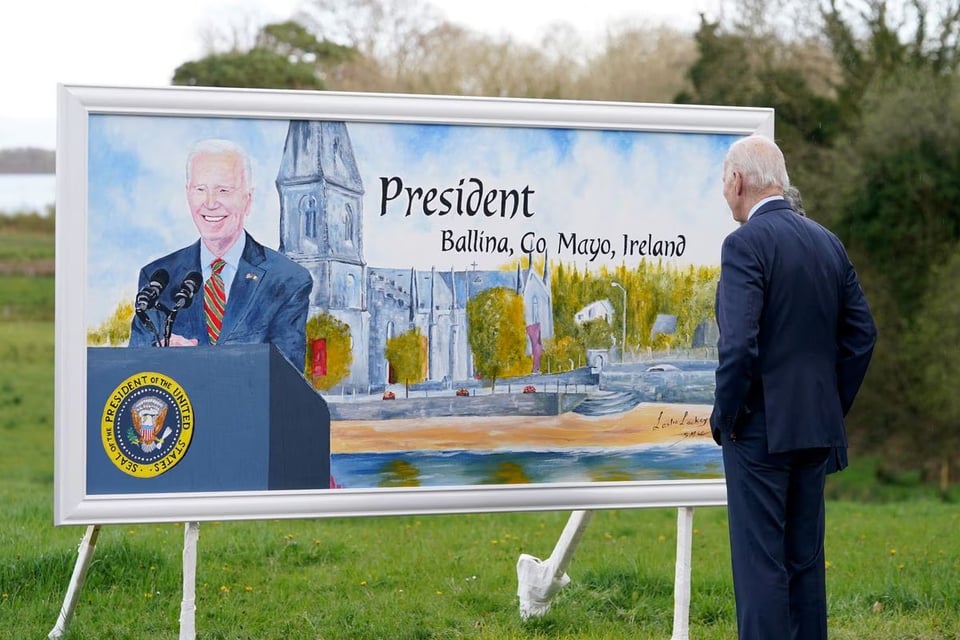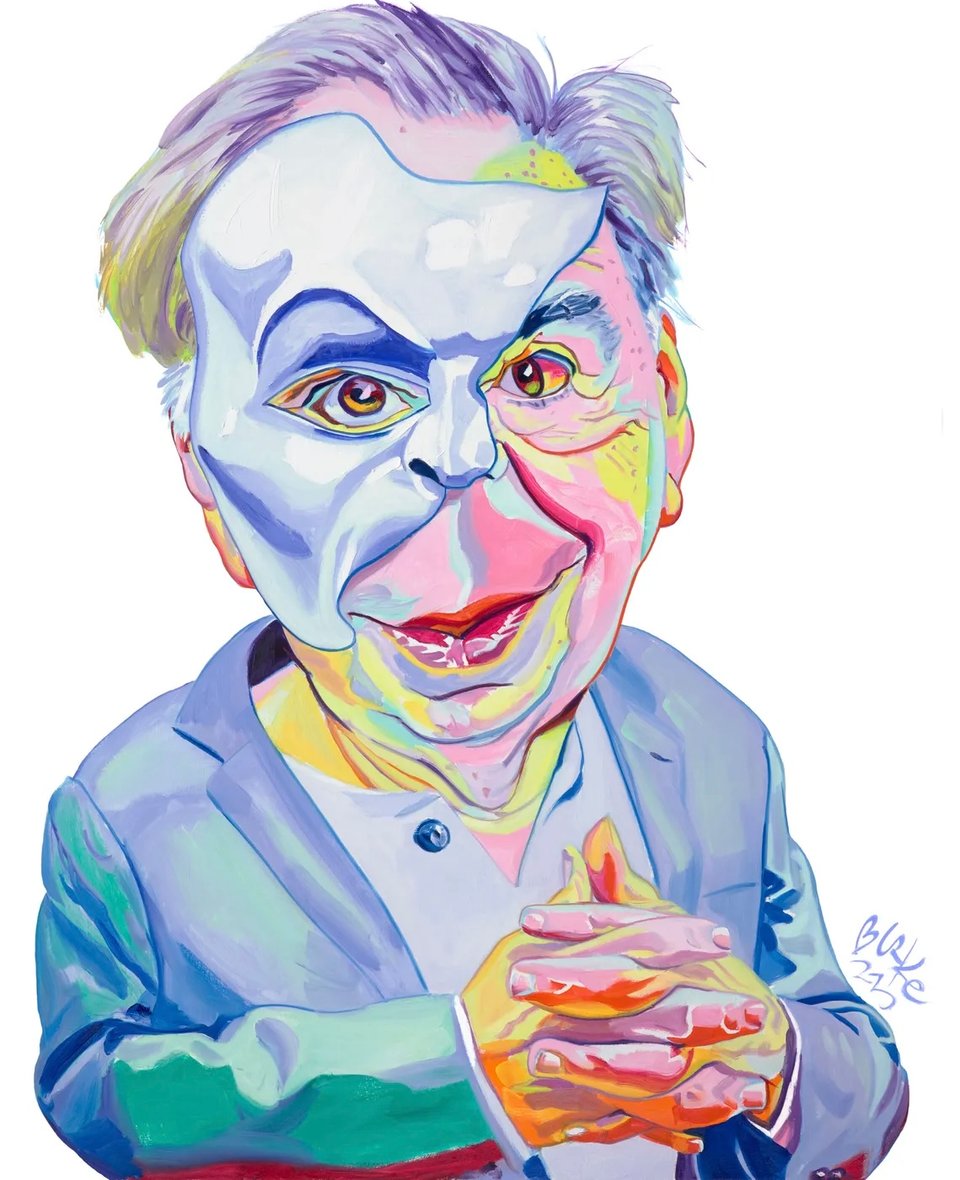Sunday, April 16, 2023. Annette’s News Roundup.
To read an article excerpted in this Roundup, click on its blue title. Each “blue” article is hyperlinked so you can read the whole article.
Please feel free to share.
Invite at least one other person to subscribe today! buttondown.email/AnnettesNewsRoundup
Joe is always busy.
Biden wraps up emotional Irish tour with campaign-style rally.


BALLINA, Ireland, April 14 (Reuters) - U.S. President Joe Biden gave a rousing campaign-style speech to an exuberant crowd in his ancestral home town in the west of Ireland on Friday to wrap up a nostalgic three-day state visit ahead of what is expected to be a gruelling 2024 re-election bid.
Biden appeared in front of thousands of flag-waving well-wishers to a rousing Celtic punk anthem in an event that brought the kind of energy the Democratic president will hope to recreate in domestic rallies.
"The truth of it is, being here does feel... like coming home. It really does. Over the years stories of this place have become part of my soul," Biden told the crowd in front of a cathedral that his great-great-great-grandfather helped build.
In a carefully stage-managed event, Biden flew past the cathedral and over the crowd in his helicopter.
"This is a time of enormous possibility. And united by history, heritage and hope - and maybe most of all courage - nothing is beyond our reach," he said.
President Biden saved the best news for last: "As Mr. Biden was leaving Ballina, he told reporters that he’d already made his decision and that he planned to run again. “We’ll announce it relatively soon,” Mr. Biden said. “But the trip here just reinforced my sense of optimism…
— Ted Smyth (@TedSmyth) April 15, 2023

Today, Phantom of the Opera closes after 35 years on Broadway.
The Phantom of the Opera was Andrew Lloyd Webber’s manifesto for what musical theater should be and, ultimately, what it would become.

In 1988, New York magazine ran a cover story about the arrival of a new Broadway show. Described as an “old-fashioned, romantic musical that assaults the senses,” The Phantom of the Opera told the tale of a deformed composer — the masked Phantom — who falls tragically in love with a beautiful soprano.
The actual composer, Andrew Lloyd Webber, had written it for his mistress turned wife, Sarah Brightman; their affair had been all over the tabloids back in London. Interviewed at the couple’s $5.5 million duplex in Trump Tower, Lloyd Webber called the show his “favorite” to date, all due respect to Evita, and, in any case, it was hard to argue with a record-breaking $18 million in advance tickets.
Phantom might have been a British musical based on a French novel, but the show’s fin de siècle grandeur fit perfectly with the decadence of the Reagan years: opulent architecture, sexual nostalgia, rock-and-roll pyrotechnics. (Plans to release a flock of live pigeons had been scrapped before the London premiere.) Even the unforgiving Frank Rich, in an otherwise negative review for the New York Times, admitted, “It may be possible to have a terrible time at The Phantom of the Opera, but you’ll have to work at it.”
Now Phantom is finally closing. In its 35-year run, the longest in Broadway history, Phantom has grossed over $1.3 billion and exceeded 20 million viewers; two weeks ago, it brought in a record-setting $3 million from ticket holders eager to pay their respects. The official cause is the pandemic, but the fact is that having a terrible time at Phantom today takes no effort at all.
The production is simply miserable, succumbing in its old age to anemic tempos and wretched acting; there is a shocking amount of dead air for a show in which the performers never stop singing. Emilie Kouatchou, marketed a little too proudly as the first Black actress to play Christine on Broadway, is a capable soprano doomed to a thankless role that often involves begging men to “guide” her. It is hard to ignore that Phantom has always been a classic rape fantasy; its appeal hinges entirely on the charisma of its titular bodice ripper, a self-described ugly virgin who plots violent attacks on the public from his basement. Fans have long speculated that the extravagant title song, in which the Phantom ferries Christine across a fog-covered subterranean lake, relies on body doubles and prerecorded vocals. Only the famous chandelier still thrills: Its ominous ascent during the organ overture (also likely pretaped) remains a true coup de théâtre. It hangs menacingly over the orchestra section, a Chekhov’s light fixture; but at the act break, it will “fall” lightly back onto the stage like Peter visiting the Darlings.
Why did anyone ever like this?
Through Phantom, Lloyd Webber presented an argument for the destiny of musical theater itself. The operatic tradition had always been divided over the relationship between music and drama, and this debate had reemerged in Lloyd Webber’s day. His contemporary Stephen Sondheim was a studied modernist who brought dramatic heft to musical theater in the 1970s. By contrast, Lloyd Webber had no ear for drama; his characters simply declaimed their emotions directly into the audience, as if by T-shirt cannon. What he offered was something different: an experience of sheer musical transcendence.
This emphasis on the musical part of musical theater served as both a defense of his earlier endeavors, which by this reasoning could be considered serious works of art, and a vision for the future of Broadway.
Night after night, the Phantom promised the audience that, for two and a half hours, nothing — neither plot nor character, not social issues, not even good taste — would be more important than what happened when that invisible beam of music shot across the darkened theater into their souls.
(New York magazine- Vulture, Andrea Long Chu).